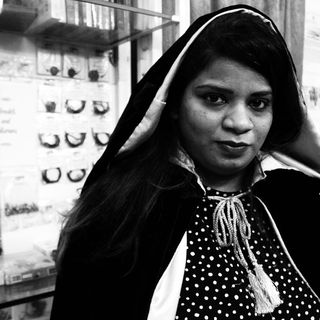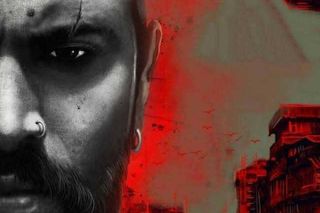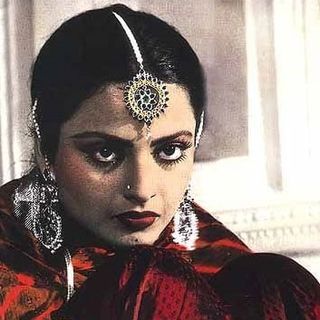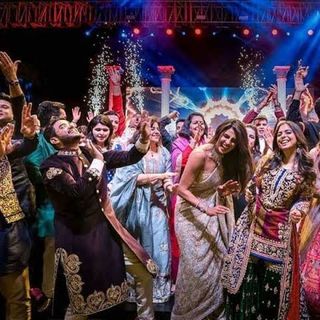
‘Moothon’ Strips Queer Love of Stereotypes, Signals Shift in Malayalam Cinema
Discovering an alternate sexuality or gender identity is an organic process that should be normalized in cinema, filmmaker Geetu Mohandas says.

A scene in the recently released Malayalam film Moothon (elder brother) has two lovers silently laying in a lake illuminated by the full moon. Soon, like children, they play in the water, hold each other, sing together, almost as if looking into each other’s souls in those few moments. The chemistry between them is palpable and so present that you want to extend your hands and touch it. The love story between Akbar (Moothon) and Ameer — one a religious fanatic and another a mute person trying to find his inner voice — is the beating heart of writer-director Geetu Mohandas’ gangster relationship-drama, Moothon.
Mohandas outright challenges the stark, traditionalist binaries of mainstream Malayalam cinema via Moothon, which fearlessly plays with gender identity but also holds on to the vulnerability of grappling with one’s queer identity and how it intersects with other facets of the characters’ lives. Like most lovers, Ameer and Akbar are trapped in a power struggle with each other, in which one wishes to fulfill the relationship, while the other chooses to surrender to the society around him. This is the point in the film that changes both their lives, for the worse.
It’s as real as any love story you would see in both Malayalam or Hindi cinema, but without unnecessary stereotypes. From Kapoor and Sons (2016) to the recent Ek Ladki Ko Dekha Toh Aisa Laga (2019), never has commercial Hindi cinema been able to really address the subject of alternative sexuality without being loud and overdramatic about it. Malayalam commercial cinema has altogether steered clear of the subject until recently. For decades, Malayalam films have obeyed patriarchal social structures by sticking to the ‘working man-homemaker woman’ stereotype and promoting the idea of a ‘perfect family’ through many of their stories. Even their superstars have always been male actors (something they share with Bollywood).
Mohandas places little value in such restrictive binaries. “Why are love stories so universal? It’s because we have all experienced it. The lightheadedness, the butterflies in the stomach, the first flush of raw emotions — all of us feel this at some stage in life. So why would that change when the lovers are two men or two women?” She adds, “When I was writing the love story between Moothon and Ameer, my only brief to myself was that people should see the love, and not the gender. Which is, perhaps, why it has resonated with so many people, where they forgot about the gender and just saw two living souls simply and absolutely in love.”
Related on The Swaddle:
What It’s Like to Be Openly Queer and Exist Within an Indian Family
Plus, these binaries do not purely revolve around romance, but also self-identity. Mulla, Moothon‘s young female protagonist, struggles with being identified as a girl. A transwoman she meets in Mumbai named Lateef encourages her to dress like one and embrace her real self. In one scene, she shows Mulla the mirror and asks her to look deep within. Though they share just a few minutes of screentime together, viewers know that this is a relationship that almost resembles one of a mother and daughter, but addresses a personal conflict that often goes unspoken, even within real families. Plus, Akbar’s distress at grappling with both his faith and his deep love for another man is another personal yet political dilemma that Mohandas chooses to retain as one of the main points of tension in the film.
“I feel that every filmmaker will have their own personal politics in their subconscious when they write and direct. As I went through life, I realized that people are much more than their gender, the community they belong to, the country they hail from, the language they speak, the jobs they do. We always box people into being a man or a woman or a person of ex-faith or profession, but there are lines in between where we discover different dimensions to our personalities. No one chooses to acknowledge that. Discovering an alternate sexuality or redefining oneself physically is just one among them. That process is so organic that it needs to be normalized in cinema, rather than be treated as something that’s out of the box,” she says.
Related on The Swaddle:
Talking With Alok Vaid‑Menon About Art, Activism, and the Transfeminine Movement
There are barely countable instances of Malayali films depicting the lives of queer characters — Sancharam (2004), Ka Bodyscapes (2016) and Njan Marykutty (2018). These films, though critically appreciated, were not mainstream and hence never reached a larger audience. Which is why, in Moothon, when a supremely popular South superstar Nivin Pauly plays a bisexual man, it becomes another step into not just breaking stereotypes, but also in making this narrative available to people. (While Njan Marykutty starred Jayasurya, a very popular actor, a year earlier, its budget and release were smaller than Moothon‘s, making it more of a surprise indie hit than a mainstream film.) “Nivin’s fans are generally happy to see him grow as an actor and he really had no fears about pulling off a character like this. He was brave to take on the role not because he did not fear audience acceptance, but because it was a genuinely complex role to pull off. Strangely though, there were also people who watched the film and said things like, ‘How could a woman make this film?’ I would still like to believe that our audiences are growing, and all I have done is to soften their conditioning and introduce them to a film where the idea of a gender-fluid society doesn’t come as a shock, but seeps in organically,” she adds.
Moothon, thus, is at the forefront of a small but strong bunch of Malayalam films that are now slowly changing the dynamics of how gender is portrayed in cinema. The popularity of niche films like Kumbalangi Nights (2019) on over the top (OTT) media platforms have been testimonies to the same. Mohandas also believes change is slowly, but steadily, happening. “We live in a patriarchal society and our stories and characters are reflective of that space, and that’s okay. However, when people glorify patriarchy or celebrate a certain kind of machismo through cinema, that’s where the problem lies. Malayalam films are now growing out of that and becoming more real, more content-driven. As a filmmaker, it’s my responsibility to put an ideology out there that promotes equilibrium within society — be it for gender, or caste or economics. If Moothon or any other film, is part of that little revolution, I would find my time and effort purposeful,” Mohandas says.
This article has been updated to include more details about the movie Njan Marykutty.
Divya Unny has been a journalist in Mumbai for the past 14 years, writing primarily on Indian and world cinema. She also performs as an actor on stage and film and has recently started writing and directing her own work.
Related


Woe Is Me! “How Do I Convince My Conventional Parents I Don’t Want to Get Married?”
